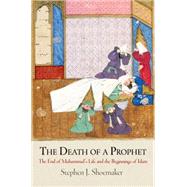The Death of a Prophet
, by Shoemaker, Stephen J.- ISBN: 9780812243567 | 0812243560
- Cover: Hardcover
- Copyright: 11/16/2011
The oldest Islamic biography of Muhammad, written in the mid-eighth century, relates that the prophet died at Medina in 632, while earlier and more numerous Jewish, Christian, Samaritan, and even Islamic sources indicate that Muhammad survived to lead the conquest of Palestine, beginning in 634-35. Although this discrepancy has been known for several decades, Stephen J. Shoemaker here writes the first systematic study of the various traditions. Using methods and perspectives borrowed from biblical studies, Shoemaker concludes that these reports of Muhammad's leadership during the Palestinian invasion likely preserve an early Islamic tradition that was later revised to meet the needs of a changing Islamic self-identity. Muhammad and his followers appear to have expected the world to end in the immediate future, perhaps even in their own lifetimes, Shoemaker contends. When the eschatological Hour failed to arrive on schedule and continued to be deferred to an ever more distant point, the meaning of Muhammad's message and the faith that he established needed to be fundamentally rethought by his early followers. The larger purpose of The Death of a Prophetexceeds the mere possibility of adjusting the date of Muhammad's death by a few years; far more important to Shoemaker are questions about the manner in which Islamic origins should be studied. This difference in the early sources affords an important opening through which to explore the nature of primitive Islam more broadly. The study argues for greater methodological unity between the study of Christian and Islamic origins and emphasizes the potential value of non-Islamic sources for reconstructing the history of formative Islam. Shoemaker's findings also raise fundamental questions about the historical reliability of traditional narratives of Islamic origins, which scholars have often taken largely at face value.






